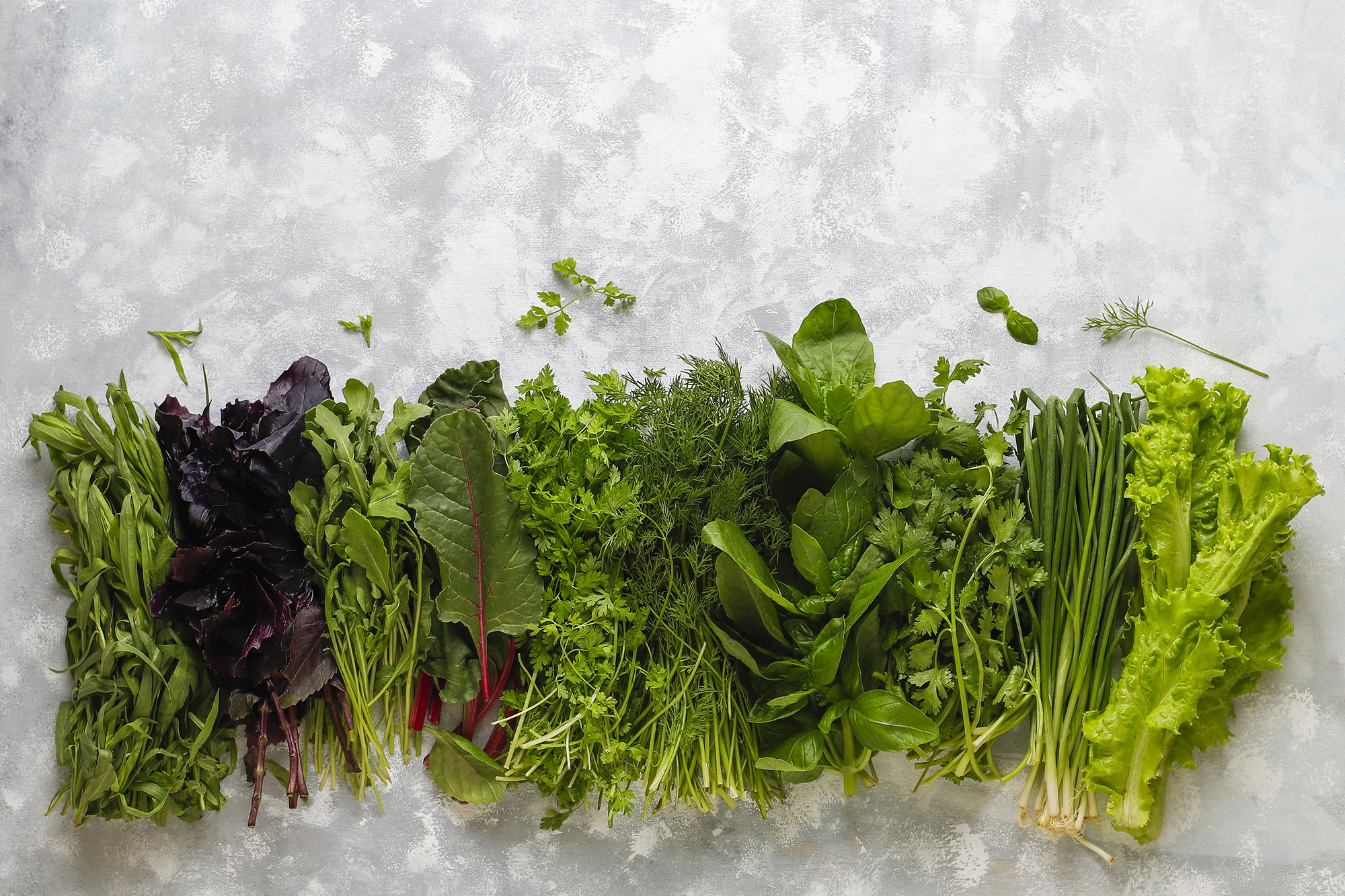A-Z of Supplements, Natural Remedies, Herbs & More

How supplements, herbs and natural remedies may help your pets.
Click on our A-Z of herbs to see there benefits to your pets.

Artichoke is the flower bud of a thistle plant and is classed as a vegetable. This superfood is a source of vitamin B3, an important cofactor in carbohydrate, protein and fat metabolism, whilst also helping to support a dog’s immune system and muscles.

Blueberries are a great source of antioxidants, fibre, vitamins C and K, and manganese. They also contain phytochemicals that can help combat inflammation, reduce the risk of cancer and other chronic diseases in dogs. Additionally, the high water content in blueberries can help with hydration and promote healthy digestion in dogs.
However, it is important to note that too much of any food can be unhealthy, so it is important to give blueberries in moderation as part of a balanced diet.

Broccoli is a cruciferous vegetable related to cabbage, kale, cauliflower and brussel sprouts. It is a great source of dietary fibre to helps normalise the gastrointestinal transit time. It also containing Vitamin K to promote bone health.

If you have read the Beatrice Potter books with Peter Rabbit, you may remember, his mother giving him some chamomile tea to help him feel better and relaxed.
Chamomile tea has long been used, as a traditional folk remedy, for a wide range of health issues. Nowadays, researchers are increasingly exploring its effectiveness in managing illnesses, including cancer and diabetes.
Chamomile is excellent for soothing and cleansing for the digestive tract and soothes upset stomachs, but is best known to aid relaxation. This is extremely beneficial in anxious dogs, providing chamomile tea prior to stressful situations can help the dog cope much better, e.g. trips in the car, visits to the vets or dog groomers.
Redpaw top tip: Puppies or Dogs that become stressed at night or when being left, can benefit from a small bowl of cool chamomile tea. When given to puppies/dogs, approximately 20mins before being left, it can aid relaxation and sleep.
Making the tea: use a good quality chamomile tea brand, preferably organic. Simply place a bag in a cup, pore on boiling water, stir and allow to cool.
Pop in your dogs bowl and let them enjoy. You can add a small amount of raw honey to give sweetness if your dog prefers.

Fennel is a member of the carrot family, however, it is not a root vegetable. A good source of calcium helps maintain healthy bones and teeth.
This also helps to increase appetite as well as minimising belching in dogs.

This is a fantastic homeopathic remedy which is useful for anticipatory fear, show fright, fear of thunder, fireworks, slow developing colds where the animal is weak, dull or apathetic, with shivering, trembling from fear, fright and sexual excitement in male dogs.
Redpaw stocks Dorwest Gelsemium and one of our qualified Dorwest advisors can help you, if you’re pet suffers from any of these problems.

Ginger is a tropical flowering plant and is from the same family as turmeric and cardamom. This superfood contains many antioxidants that can contribute to a dog’s overall health and wellbeing.
It is also a great source of potassium to help with nerve and muscle functions.

Kale is a superfood that is increasing in popularity in pet food. This is a cruciferous vegetable and part of the Brassicaceae family, which include cauliflower, broccoli and cabbage, to name a few.
Kale is a good source of vitamin A that helps to maintain healthy vision. While also having low-calorie content and being high in potassium and calcium to help support healthy bones.

Mint is a perennial herb grown for its leaves. This is a great source of potassium to help with nerve and muscle functions. Whilst also containing vitamins A and C, which helps with bone, skin and vision health.

Mulberries are grown on trees and a type of fruit related to figs. Fully loaded with antioxidants to help with everyday health and wellbeing. In addition, they are a source of iron to help support normal functions of the circulatory system.

Nettles are easily found all over the UK and we often think of them as a painful weed, yet they are rich in vitamins A and C, iron, sodium, chlorophyll, zinc, silica, protein and dietary fibre. Among a whole host of ailments that nettles can benefit, they can be used for helping pets with skin sensitivities and allergies to pollen and trees. The Nettles antihistamine properties can be harvested and made into a simple Canine rinse or spray.
NETTLE LEAF RINSE – simply harvest some nettle tops, select only the top, new growth young leaves (make sure you use gloves so you do not get stung when handling the leaves, once cooked the sting is removed)
- Use approximately one large mug or a 1 pint jug full of nettles, cover with recently boiled water and leave for at least 8 hours or overnight to steep.
- Strain the liquid and place in a clean bottle, you can keep the rinse in the fridge for up to three days if needed.
You can then rinse your itchy, scratchy dog with your nettle leaf rinse to help alleviate their symptoms. Where possible leave the dog to dry naturally and then the rinse can soak into the fur and skin. It’s also helpful to keep in a spray bottle, which can be used after walks and sprayed on paws or bellies.
Tip: Rinse your dog and then take it for a short walk, or play with it outside, this stops the dog from licking or scratching so much and refocuses it’s mind on something else other than being damp.

Don’t just think of parsley as a garnish – parsley is quite the nutritional powerhouse, including large amounts of vitamin K, along with healthy amounts of vitamins C and A, and iron.
Parsley is reported to aid arthritis, freshen breath, aid urinary tract infections, and benefit cancer patients.
Parsley is generally safe in dried, fresh or tea forms, according to Herbs for Pets; however, avoid using the seeds since they may be toxic to pets in large amounts.
Redpaw recommends:
For arthritis, make a tea of the dried or freshly grated root. Give 1-2 tablespoons of the tea per day to your dog. You can also give in tincture form at 1-2 milliliters per 30 pounds of weight.
For urinary issues or as a nutritional boost, use a vegetable juicer or a blender to turn the fresh leaves into a “green soup.” You’ll need to fill the blender halfway and add water if you don’t have a juicer. Feed one teaspoon per 20 pounds preferably on an empty stomach. But if that doesn’t work, try adding it to your dog’s water. If that still doesn’t work, then you can try adding it to his food.
Reference: Herbs for Pets by Gregory L. Tilford and Mary L. Wulffm
 Pomegranate is a fruit with seeds and flesh surrounded by skin and comes from the Lythraceae family. It originated throughout the Mediterranean region and is a fantastic source of vitamin C which has an essential role in collagen synthesis; this is important to help maintain healthy bones.
Pomegranate is a fruit with seeds and flesh surrounded by skin and comes from the Lythraceae family. It originated throughout the Mediterranean region and is a fantastic source of vitamin C which has an essential role in collagen synthesis; this is important to help maintain healthy bones.
Redpaw is passionate about promoting pet health and well-being in animals.

Related Articles

Discover the benefits of Redpaw Peptide+
Discover the Benefits of Redpaw Peptide+ Dog Foods: Cooked with Revolutionary Freshtrusion HDP Technology Why Choose Redpaw Peptide+ Dog Foods? Redpaw Peptide+ Dog Food is

Caring for Your Senior Canine Companion
Caring for Your Senior Canine – Nourishing Their Well-Being Through Nutrition and Enrichment. As our cherished canine companions embark on their golden years, providing them with

Benefits of Keeping a Dog Food Diary
Keeping a dog food diary can be incredibly beneficial for both you and your furry companion. Lets explore some reason why: Nutritional Balance: A food


